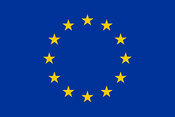MULTICARE
Multi-hazard low-carbon resilient technologies and multi-scale digital services for a future-proof, sustainable & user-centred built environment.
Decision-support tools & low-carbon technologies for multi-hazard resilient buildings.

The built environment is ill-prepared for more frequent and increasingly intense climate-related extreme events. These cause severe socio-economic losses and adversely affects public health. Recent scientific and technological advances in the construction industry provide timely solutions for improving the resilience of buildings for specific hazards, but these are often not cost effective or eco-friendly. There is a lack of frameworks for assessing the climate resilience, making it challenging to develop optimal solutions for multi-hazard scenarios.
MULTICARE will address this challenge by developing innovative multi-criteria decision-support frameworks and providing plug & play low-carbon resilient technologies for improving the multi-hazard resilience of our built environment in a cost-effective, reliable and sustainable manner. A suite of multi-disciplinary digital services and tools will be developed for multi-hazard resilience assessment, design, operation and management across multiple scales (component, building, neighbourhood/district). The results will be demonstrated in large-scale pilots (3 buildings, 4 neighbourhoods/cities), in different countries with diverse conditions. A user-centred, inclusive and participatory approach will be consistently implemented at all stages of the project for citizens engagement and for extending the durability of MULTICARE impact. To achieve the project goals, MULTICARE combines 21 partners covering the whole technical value chain required for solutions in resilient and sustainable buildings.
Facts
| Funder: | European Union |
| Programme: | Horizon Europe |
| Overall budget: | € |
| Grant amount: | € 7.497.153,28 Contribution to TU Delft: € 1.200.147,31 |
| Grant number: | 101123467 |
| Role TU Delft: | Lead partner |
| Project duration: | 4 years |
| TU Delft researchers: | Prof. Mauro Overend, https://www.tudelft.nl/en/staff/m.overend/ Dr. Simona Bianchi, https://www.tudelft.nl/en/staff/s.bianchi/ Dr. Alessandra Luna-Navarro, https://www.tudelft.nl/en/staff/a.lunanavarro/ Dr. Azarakhsh Rafiee, https://www.tudelft.nl/en/staff/a.rafiee/ Prof. Peter van Oosterom, https://www.tudelft.nl/en/staff/p.j.m.vanoosterom/ Dr. Thaleia Konstantinou, https://www.tudelft.nl/en/staff/t.konstantinou/ |
Project partners
Priedemann Facade Experts, IES R&D, National Institute for Earth Physics, Sapienza University of Rome, X-LAM DOLOMITI, STRESS, University of Naples Federico II, Amsterdam Institute for Advanced Metropolitan Solutions, Municipal Administration for the Consolidation of Buildings with Seismic Risk, ASM - Market Research and Analysis Centre, Romania Green Building Council, RINA Consulting, Transilvania University of Brașov, Agenzia Campana per l'Edilizia Residenziale, Boom Builds, OMRT, Rothoblaas, Arup, Primăria Municipiului Tecuci, Hölscher.

